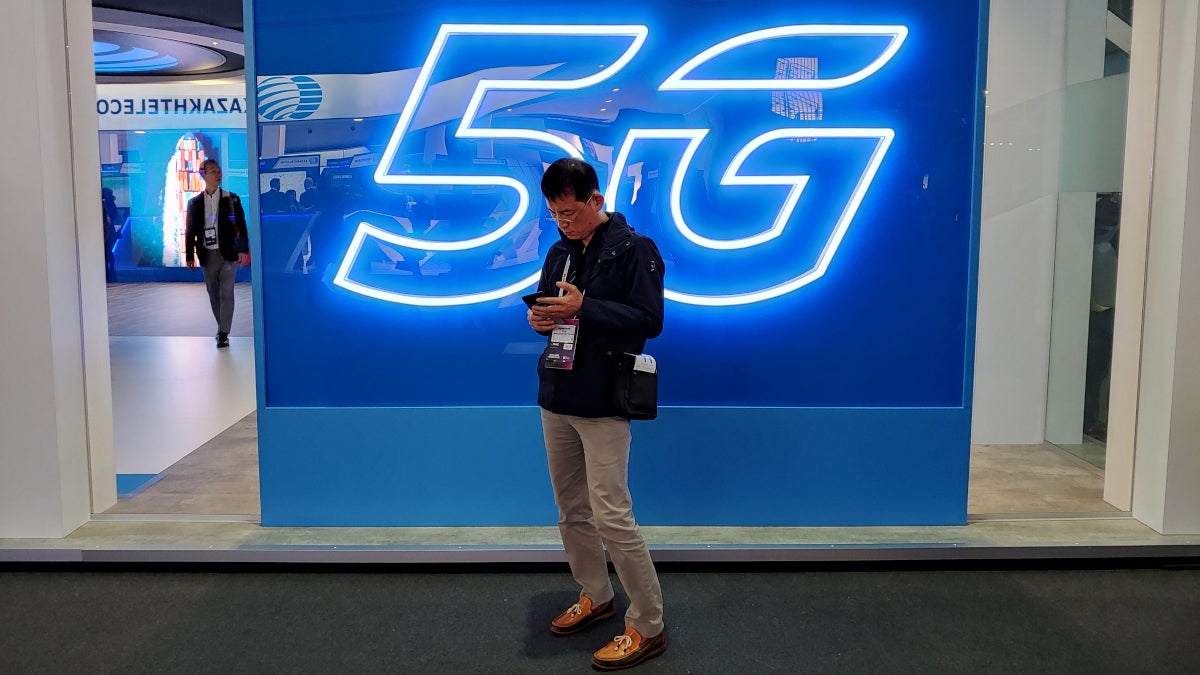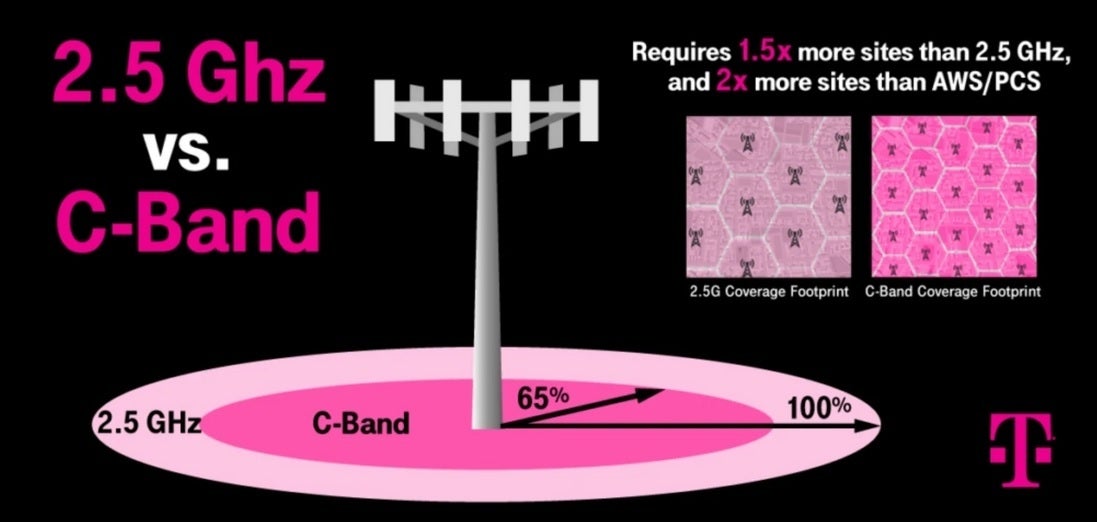Mid-band 5G coverage in the states should improve following deal between carriers and the FAA

When T-Mobile started to employ the mid-band 2.5GHz spectrum it acquired in the $26 billion purchase of Sprint, it quickly became the 5G leader in the U.S. That's because mid-band signals travel farther than high-band mmWave signals and are faster than low-band data speeds. Verizon and AT&T were focused on their high-band mmWave 5G signals that while faster than mid-band, were not nearly as accessible because of the short distances they travel. They are also more easily blocked by trees and structures.
Mid-band spectrum that is part of the C-band can interfere with the altimeters on airplanes
As a result, AT&T and Verizon customers had trouble finding mmWave 5G signals; at the same time, T-Mobile subscribers were able to connect to the carrier's mid-band 5G delivering download data speeds up to 10x faster than 4G. And while AT&T and Verizon wanted to match T-Mobile and deploy their own mid-band networks for 5G, they would have to pick up mid-band spectrum from an FCC auction. Verizon and AT&T spent over $68 billion to pick up some mid-band spectrum in the C-band.

T-Mobile's 2.5-GHz mid-band spectrum doesn't interfere with planes as C-band spectrum does
But before the two wireless firms were able to employ the C-band wireless airwaves it bought, they had to deal with the FAA. Some of the frequencies used by the C-band spectrum that Verizon and AT&T had picked up in the FCC auction interfere with the altimeters used by airplanes. This instrument tells the pilot how far above the ground he/she is flying which is critical to know for safe landings under poor weather conditions.
While T-Mobile's 2.5GHz spectrum does not interfere with aircraft altimeters, C-band spectrum in the 3.7GHz-3.98GHz range does. Originally, Verizon and AT&T agreed to limit the use of their C-band airwaves until this July. This was done to give the airlines time to replace the altimeters on their aircraft. As per Reuters, this past Friday Verizon, AT&T, T-Mobile, and UScellular told the FCC in a letter seen by the news agency that they agreed to take some voluntary actions in order to keep airplanes landing safely at U.S. airports.
The FAA wanted an agreement to lock the carriers in until 2033 but settled for 2028
The letter stated, "These voluntary commitments will support full-power deployments across C-Band, and are crafted to minimize the operational impact on our C-Band operations." Both the FAA and the carriers have had discussions and the letter indicates that all of the parties have apparently come to an agreement that will allow T-Mobile, AT&T, Verizon, and UScellular to hike power levels so that they can get full coverage from their 5G C-band airwaves (other carriers besides Verizon and AT&T ended up winning some C-band licenses).
On Friday, the FAA stated that it continues "to work closely to ensure a safe co-existence in the U.S. 5G C-band environment." Also at the end of last week, Verizon said that it had "agreed to final voluntary commitments that will allow our company to fully use our C-band spectrum for 5G by the previously agreed to deadline of July 1." AT&T said that the "filing is the result of collaborative and productive conversations with the FAA." UScellular said that the "agreement results from collaboration and coordination with the FAA, FCC, and our industry partners to ensure UScellular can deploy our C-band spectrum without delay."
Reuters had reported back in February that the FAA, Verizon, and AT&T were negotiating a new agreement that would extend the voluntary limits placed on C-band usage by the carriers beyond the July 1st deadline.
Two sources briefed on the situation said that while the FAA wanted to extend the commitments made by the carriers until 2033, it appears that the agreement will last through 2028. With the agreement in place, U.S. consumers could have an easier time finding and connecting with 5G signals running over mid-band airwaves.
Follow us on Google News













Things that are NOT allowed:
To help keep our community safe and free from spam, we apply temporary limits to newly created accounts: